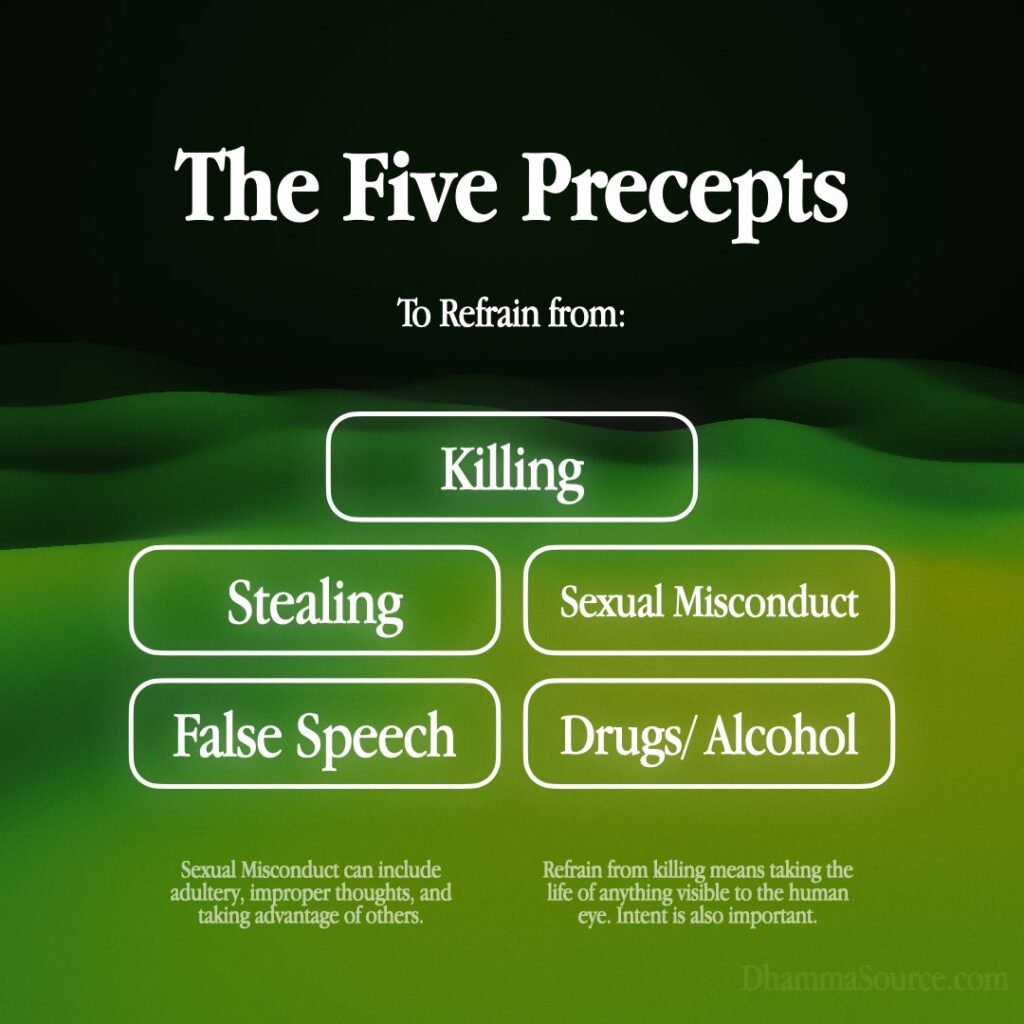The Five Precepts – Buddhism

Buddhism is often associated with meditation and spiritual development, but it also has a strong ethical component. One of the most important aspects of this is the Five Precepts, a set of guidelines for ethical living. In this blog post, we will take a closer look at what the Five Precepts are, why they are important, and how to practice them in daily life.
What are the Five Precepts?
The Five Precepts are a set of five basic ethical guidelines that are common to all schools of Buddhism. They are:
- To refrain from harming living beings
- To refrain from taking that which is not given
- To refrain from sexual misconduct
- To refrain from false speech
- To refrain from intoxicants that cloud the mind

These precepts are not commandments or rules, but rather guidelines for living an ethical and compassionate life. They are based on the principle of avoiding negative actions that would cause harm to oneself or others.
Why are the Five Precepts Important?
The Five Precepts are important for several reasons. First, they provide a framework for ethical living. They help us to be mindful of our actions and the impact they have on others, and to make choices that are in line with our values.
Second, they help to purify the mind. By following the Five Precepts, we are less likely to engage in negative actions that would lead to negative consequences, such as guilt or remorse. This, in turn, helps to create a more peaceful and contented mind.
Finally, the Five Precepts are a path to spiritual development. By following them, we are less likely to create negative karma, which can lead to rebirth in lower realms. This means that by following the Five Precepts, we are more likely to achieve enlightenment and liberation from the cycle of rebirth.
How to Practice the Five Precepts in Daily Life
While the Five Precepts may seem simple, they can be challenging to practice in daily life. Here are some tips for integrating them into your life:
- Be mindful of your actions. Before you do something, ask yourself if it is in line with the Five Precepts.
- Practice non-harming. This means being mindful of the impact your actions have on others and avoiding actions that would cause harm.
- Be honest and truthful. Refrain from lying or exaggerating, and be mindful of the impact your words have on others.
- Be mindful of your sexuality. This means avoiding sexual misconduct, such as infidelity or sexual harassment.
- Avoid intoxicants. This means avoiding alcohol and drugs, as they can cloud the mind and lead to negative actions.
By following these tips and making a conscious effort to practice the Five Precepts, you can start to integrate them into your daily life. Remember that the Five Precepts are not rules to be followed rigidly, but rather guidelines for ethical living.
In conclusion, the Five Precepts of Buddhism are a set of guidelines for ethical living. They provide a framework for making moral choices, help purify the mind, and are a path to spiritual development. By following them, we can live a more compassionate lives.








